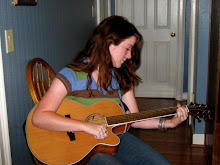Understanding the social pressures of this time period is vital to our understanding of it's literature. Basically, birthright and class were the defining points of the time. A person's social life also determined their freedom to speech, education, and financial resources.
Upon reading this perspectives article, I gained more respect for authors like John Stuart Mill and Thomas Carlyle. They stepped out of the confines of society bravely to stand up for what they believed to be right.
Tennyson is a great example of resilience. Under the parylizing effects of discouragement, many young men would have given up. His grandfather told him that he would never find success with his writing. I hope the grandfather lived long enough to see himself proved wrong. Tennyson was named Poet Laureate. I think Alfie's powerful writing stems from his honesty. He struggles with living in a materialistic society and trying to understand and live by Biblical truth. He pondered if a Christian society was even possible. Alfred is honest about his doubts and struggles, thus, his works are relateable. He somehow was a rebel and a conformist at the same time. I think he was rebellious in subtle ways, and not in the blatent, controversial fashion of previous authors. Ambiguity clouded most of his works, providing a shield of protection around him. I hope that the ambiguity is not an indicator of his own state. Living and dying with no sense of truth or self is really quite disheartening. Some of his works indicate a "let's just wait and see" mentality. The Kraken is beautifully depicted, but left with ambiguity. The descriptions are very vividly portrayed as if the narrator is looking at the beast. In the end, the poem says "Until the latter fire..." (586), we remain unsure of it's existence. This may be a stretch but I wondered if the sea beast is supposed to symbolize the devil. In the end times, the devil is supposed to come into the spotlight, which would fit with "he shall rise". Also "on the surface die" coincides with God's final victory over him in the final days.
Mariana drips of disappointed expectations and hopes. The main idea of the poem seems to be life without love is not worth it. She talks about nature with a dreary tone. Without love, her world is dim and everything appears in a negative light. In the second to last stanza, she talks about the beauty of a dreamy house, but she still wishes she was dead. The narrator seems to have given up on life. She is probably clinically depressed, but this was before the days of Zoloft. Again, I am typing out my musings and they may be completely unconnected. Tennyson struggled with feeling sure of Biblical truth, could the he in this poem be read as God? The world around was dark and chaotic and the narrator wondered where God was. Could the narrator be a metaphorical Tennyson? This connection might be a stretch. Feel free to find the weakness of this comparison.
Subscribe to:
Post Comments (Atom)

2 comments:
Hi Meredith,
I completely agree that reading about Tennyson's life was fun and interesting. While I attribute resilience with more than discouragement, I definitely see your point. In my opinion, I think Tennyson was someone born to be a writer, and his upbringing, including the discouragement, was fuel to his fire. I wish the book's biography of him went into a little bit more detail as to why some of his works were trashed by critics. This could really help prove your point about social pressures. I also like your connection to God and the narrator.
Meredith,
Very astute "musings" on Tennyson's life and poems. You make several insightful observations on this author--good job!
Post a Comment